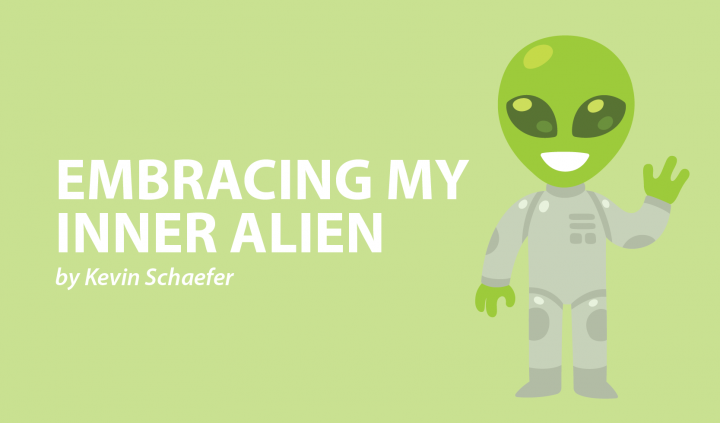How Aides in School Prepared Me for Having Caregivers
Written by |

From the time I was in kindergarten to when I graduated high school, I had a full-time aide accompany me to all of my classes. This person helped me with my books, took notes for me, set up my lunch, and kept me in line so that I wouldn’t run over the other kids.
I worked with several different assistants throughout grade school, but my last one, Nan, stuck with me from seventh grade all the way through my senior year of high school. She met me when I was a moody, cynical teenager who had grown tired of having an adult with me all the time. She had to deal with the immature adolescent version of me, and how she managed this task speaks to her resilience and patience.
Fortunately for her, I did mature, and over time I came to think of her as a friend, not just someone who helped me every day. We had different personalities and interests, but the sheer amount of time we spent together forced us to find common ground. She watched me grow up during a formative period of my life, and in doing so, she was able to provide me with advice based on her own life experiences.
As I think back on the conversations I had with Nan and other aides, and the things we learned from each other, I realize how much these relationships prepared me for having caregivers as an adult. Though the job description for an aide at school is significantly different than that of a certified nursing assistant (CNA), the two have quite a bit of overlap in terms of my approach to working with them.
Stepping outside my comfort zone
No matter how accustomed I was to having an adult aide with me in school, it always made me feel awkward. I was the only kid in the class in a wheelchair, plus I had an adult sitting next to me and following me around. What I didn’t realize back then was that having to confront this awkwardness and deal with it prepared me for working with CNAs later on.
Nothing is quite as uncomfortable and nerve-racking as letting someone I barely know bathe me and put on my catheter in the morning. I’ve been working with professional caregivers for almost five years, and I still get anxious when I have to train someone new to handle my routine. Yet, by stepping outside my comfort zone when I was younger and having an adult aide with me, I was better prepared to deal with caregiver-related awkwardness as an adult.
Finding common ground
As a kid obsessed with superheroes and “Star Wars,” I had to think outside the box to connect with my middle-aged assistants in school. At the outset, we didn’t have much in common. But I versed myself in the art of conversation from an early age. I talked with my aides about their families and backgrounds, and aside from my moody teenager phase when I was an annoyance, I was good at building relationships with them.
Likewise, this skill came in handy in a big way when I started hiring caregivers. I’ve had caregivers from other countries, whose cultures and backgrounds were wildly different from my own. Connecting with some of them and finding common ground wasn’t easy at first, but my willingness to engage them and ask questions led to some great conversations. That, in turn, created friendships. By building relationships with people who weren’t in my primary social circle when I was younger, I prepared myself to connect with caregivers later on.
Articulating my needs
I recognized early on that my aides wouldn’t do everything for me. They were there to assist me with my physical needs, but I had to be proactive and articulate my needs. The same goes for CNAs. These people are not mind readers, and so I must instruct them on how to take care of me, especially when I’m working with someone new.
Relying on other people to help me is never easy, but it’s something I’ve been doing my entire life. I’m fortunate to have an incredible support system, and to have cultivated relationships with countless assistants and caregivers over the years. For me, it all started with the first aides I had in elementary school.
By the way, Nan ended up marrying my 12th-grade math teacher. I may have been a pain in middle school, but I inadvertently made up for it by being her matchmaker.
***
Note: SMA News Today is strictly a news and information website about the disease. It does not provide medical advice, diagnosis, or treatment. This content is not intended to be a substitute for professional medical advice, diagnosis, or treatment. Always seek the advice of your physician or other qualified health provider with any questions you may have regarding a medical condition. Never disregard professional medical advice or delay in seeking it because of something you have read on this website. The opinions expressed in this column are not those of SMA News Today, or its parent company, Bionews Services, and are intended to spark discussion about issues pertaining to spinal muscular atrophy.





Leave a comment
Fill in the required fields to post. Your email address will not be published.